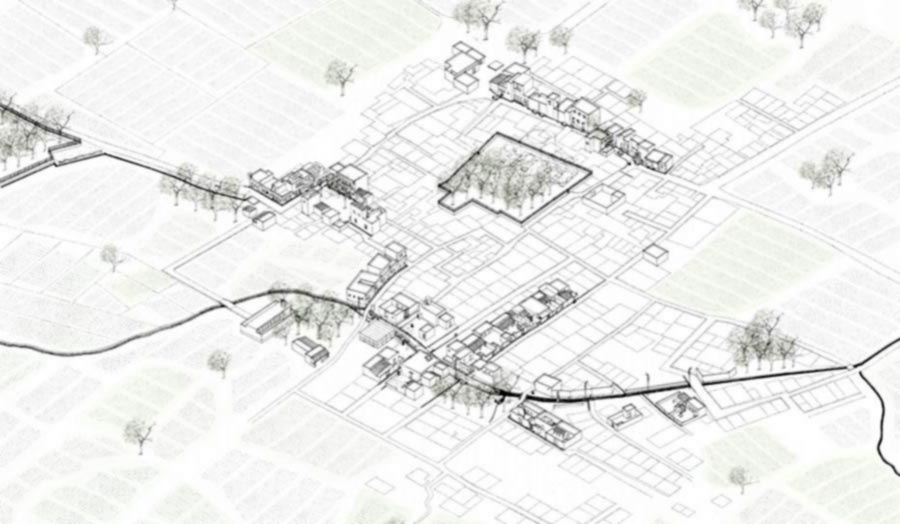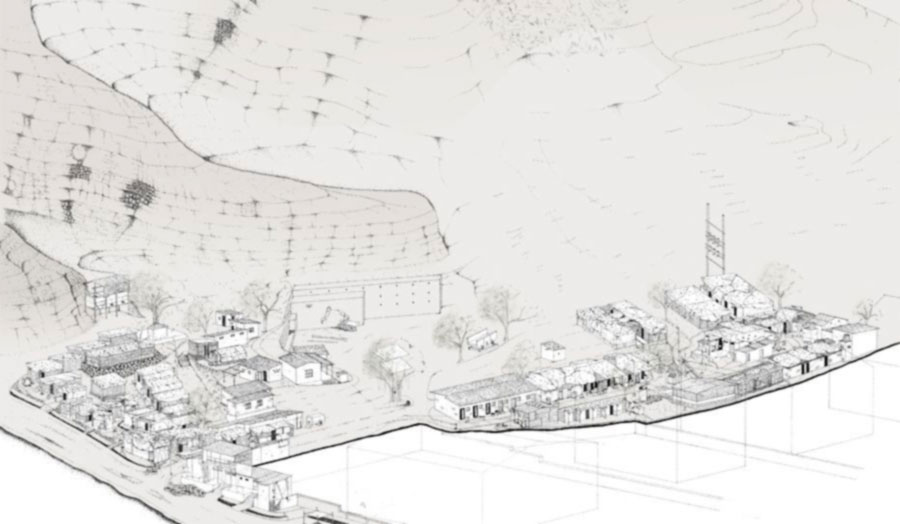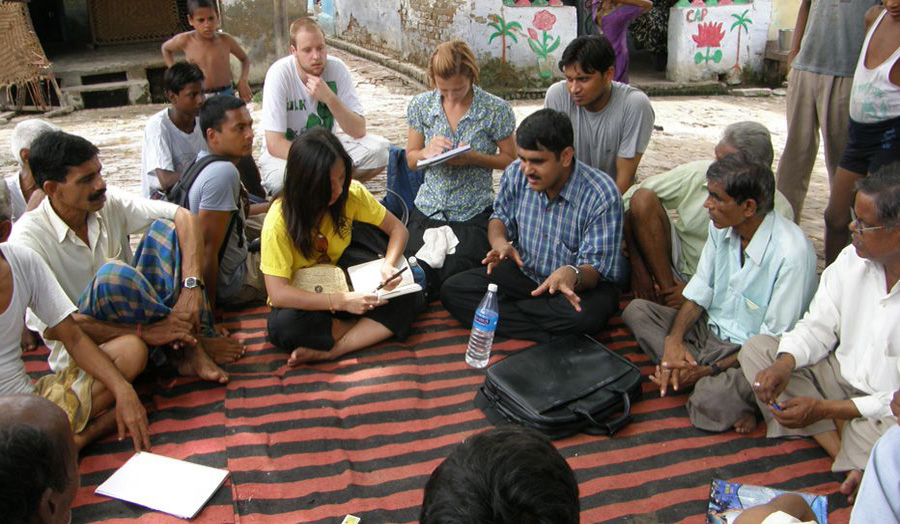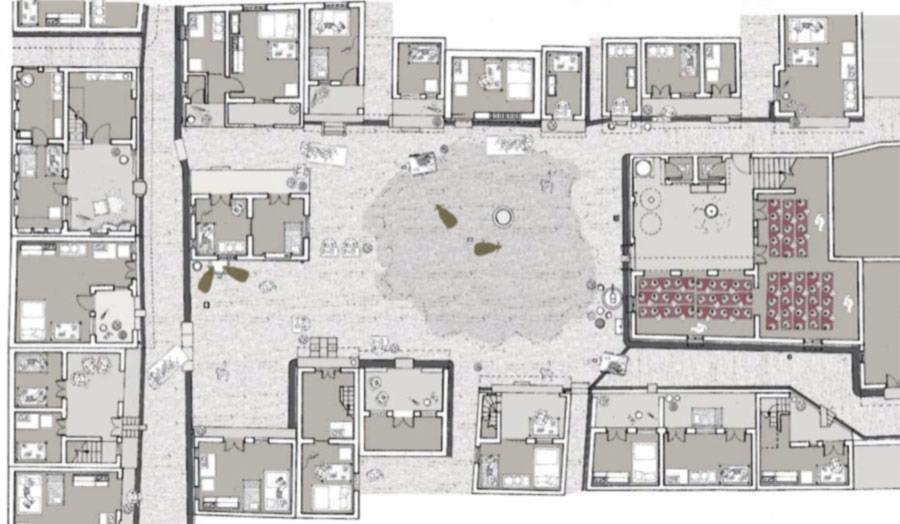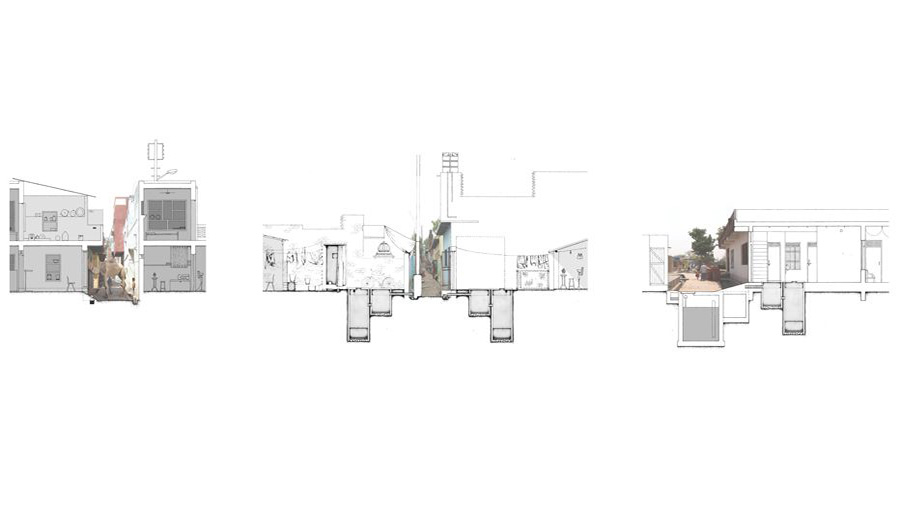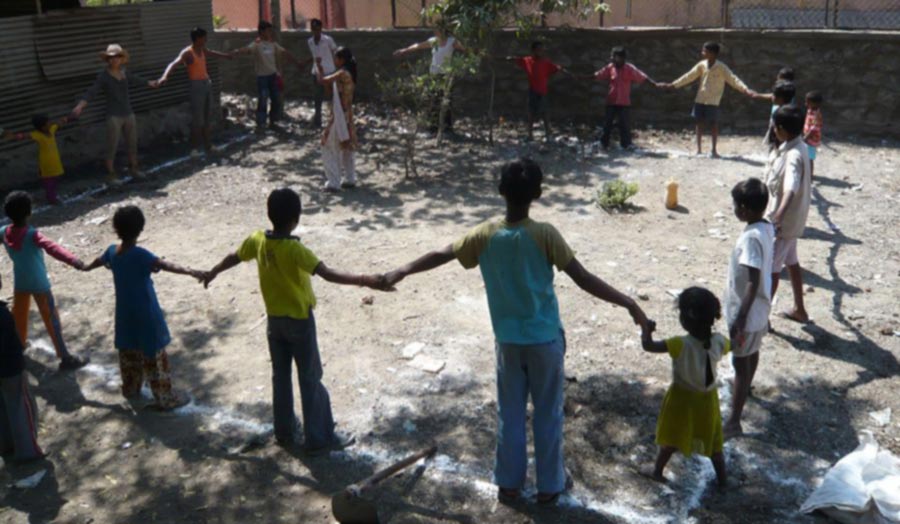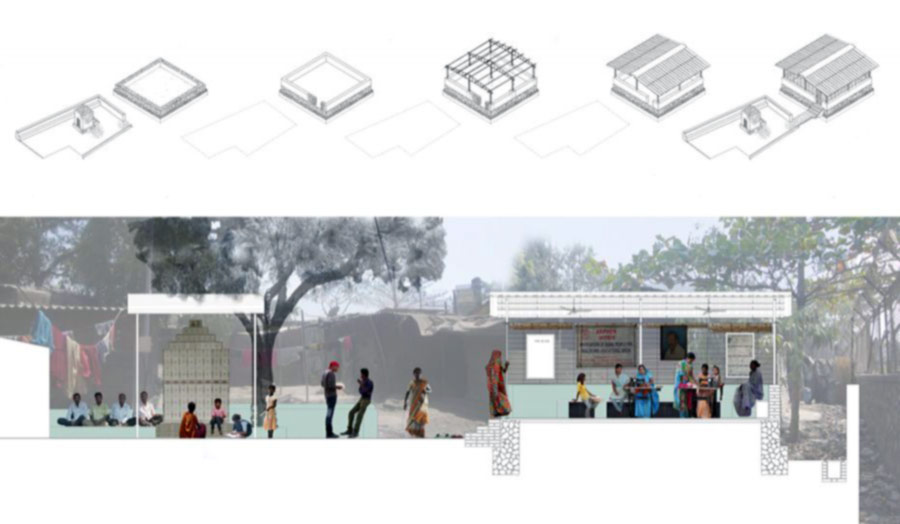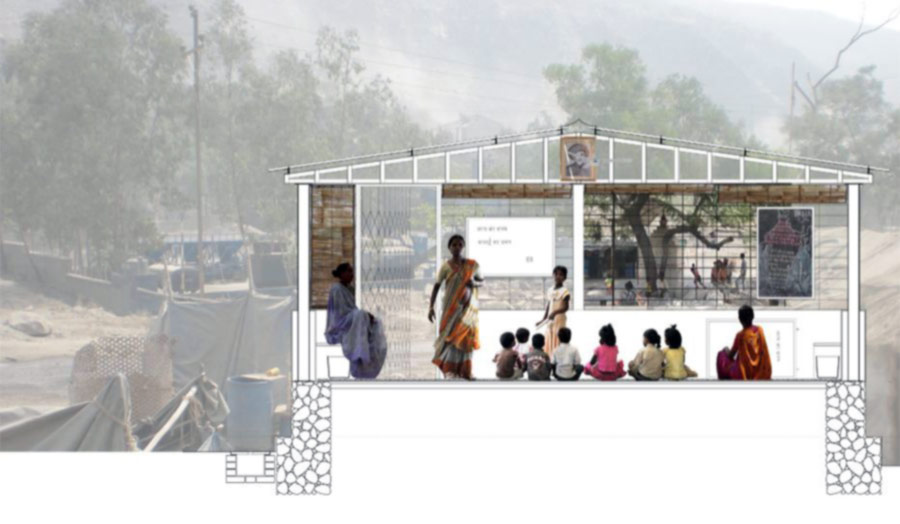Dr Bo Tang is a reader in architecture and co-director of the Architecture of Rapid Change and Scarce Resources (ARCSR) research and practice group.
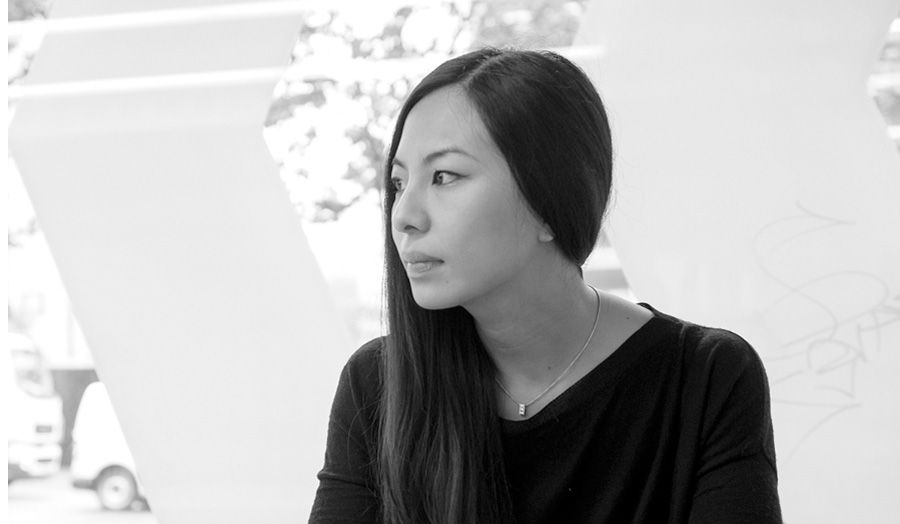
Dr Bo Tang
Dr Bo Tang studied architecture at the Bartlett School of Architecture, University of East London and London Metropolitan University, where she graduated with distinction in 2008 and was awarded the Integrated Design Study prize. She was part of the RIBA Boyd Auger Scholarship 2008 research team, which explored art, urbanism and architecture in Bosnia and Herzegovina. She completed her PhD on a full three-year scholarship in 2014.
Her research thesis is entitled Negotiating Shared Spaces in Informal Peri-Urban Settlements in North India, and was one of four shortlisted for the RIBA President’s Award for Outstanding PhD Research in 2014. Since 2006, Bo has been involved in the studio-based teaching, research and practice group, Architecture of Rapid Change and Scarce Resources (ARCSR), coordinating live projects with students in informal settlements in India, in collaboration with local NGOs, and supported by The Water Trust – ARCSR. Selected projects include a sanitation upgrading project in Agra, shortlisted for the National Urban Water Awards (India) in 2010; and quarry classrooms in Navi Mumbai, shortlisted for the AJ Small Projects Award in 2010.
Since 2008, Bo has led an on-going research project in Sierra Leone that involved the construction of a new primary school in Freetown in 2011, and surveys of urban neighbourhoods and settlements in the city (2010-2013, 2018-2020). From 2014-2017, she led teaching and research in the Kathmandu Valley, Nepal, focused on the peri-urban and post-earthquake topography. Since 2017, Bo has focused on refugees, city-making and migration in Athens, Greece. In 2022, she led an international professional development residency – CAMP: Athens – building on this research in the city, and supported by Erasmus + (KA1) funding.
Prior to focusing on academic work, Bo gained practice experience at Panter Hudspith Architects and as a freelance architectural model maker. Bo is co-editor with Shamoon Patwari of Learning from Delhi (Earthscan, 2010) – awarded an Urban Design Group prize in 2012, and The Architecture of Three Freetown Neighbourhoods (2013), a collaboration with the British Council Sierra Leone, shortlisted for RIBA President’s Award for Outstanding University-Led Research in 2014.
She is also co-author with Professor Maurice Mitchell of Loose Fit City: The Contribution of Bottom-Up Architecture to Urban Design and Planning (Routledge, 2018). Bo is currently a reader in architecture, and Co-director of the ARCSR teaching, research and practice group at London Metropolitan University. Her work focuses on the nature of collaborative hands-on making and the culture of bottom-up city-making, explored and examined through her teaching, research and live projects in India, Nepal, Sierra Leone, Greece and the UK.
Reseach group – Architecture of Rapid Change and Scarce Resources (ARCSR)
Research Centre – Centre for Urban and Built Ecologies (CUBE)
Research interests include:
- civic architecture and development in the global south
- architectural education, live projects and participatory (hands-on) making
- urban design and bottom-up city-making
- socially-conscious, community-based architecture
- Unit Tutor for Architecture RIBA 2 MArch – Unit 6
- Module leader for Technology 1 – Architecture BA
- PhD Supervisor – architecture
- Tutor – A Way of Building short course, Centre for Alternative Technology (CAT), Wales
- Mitchell, M. & Tang, B. (2020) “Hill Station Houses in Freetown”, Sierra Leone Chapter: Sub-Saharan Africa Architectural Guide, Dom Publishers.
- Mitchell, M. & Tang, B. (2018) Loose Fit City: The Contribution of Bottom-Up Architecture to Urban Design and Planning, Routledge.
- Mitchell, M. and Tang, B. (2016) “Live Projects: Innovating in the Present.” Brookes eJournal of Learning and Teaching. Vol. 8 Issues 1 & 2.
- Mitchell, M. and Tang, B. (2015) “Live Projects as Research. Tools of Practice Research in Making Architecture.” Paper in Proceedings of Creative Practice Conference, Arkitektskolen Aarhus, Denmark, 10-12 September 2015.
- Tang, B. (2015) “Pallectecture – From packing cases to lamella roofs”, Clean Slate journal, Centre for Alternative Technology, Spring 2015.
- Tang, B. (2014) “Setting up the First Free School of Architecture in Freetown”, Edge Condition, vol 4. Teaching the Future.
- Tang, B. (2014) “Negotiating Shared Spaces in Informal Peri-Urban Settlements in India”, Planum, The Journal of Urbanism.
- Tang, B. (2014) “Participation and the Role of the Architect”, Clean Conscience, Dirty Hands Conference, the Mackintosh, Glasgow School of Art.
- Mitchell, M. (2013) “The architecture of three Freetown neighbourhoods: documenting changing city topographies 2008-2013”. Patwari, S., & Tang, B. eds. ASD Projects, London Metropolitan University, London.
- Tang, B. (2013) “Negotiating Shared Space in Peri-Urban Settlements in India, Within the Limits of Scarcity - Rethinking Spaces, City and Practices, SCIBE conference proceedings”, University of Westminster.
- Tang, B. (2012) “Quarry Schools: Building Community Classrooms in Stone Worker Quarry Settlements in Navi Mumbai”, Children, Youth and Environments Journal 22 (1): 280-293.
- Editor, ARCSR Journal Series (2008-2022)
Negotiating Shared Spaces in Informal Peri-Urban Settlements in North India: Collaborative Architectural Making as a Catalyst for Civic Empowerment and Social Change
Supervisors:
Prof. Maurice Mitchell, Prof. Peter Carl and Dr Matthew Barac
Abstract from Dr Bo Tang's full thesis:
This research investigates the nature and creation of common places in informal peri-urban settlements in North India through negotiation and sharing. It aims to develop a profound understanding of the effect of the post-hoc introduction of amenity buildings and city infrastructure in the creation of common places. The approach takes collaborative architectural making as a catalyst for civic empowerment and social change, discussed primarily through first-hand experience of practical small-scale live interventions in two urban conditions of scarce resources. These interventions serve as case studies.
The research hypothesises that the social structure and order of shared spaces is continually transforming, adjusting and being re-made to accommodate the changing urban conditions within low-income settlements. The informal negotiation of these common spaces creates a shared collective identity. This study suggests that collaborative place-making engenders a renewed understanding or interpretation (by the urban migrant/citizen) of the nature of common places, in which the origins or memory of the traditional rural village are transformed into a new situation of the urban village within the host city.
Central to the research was the development of spatial practices through small-scale interventions in two peri-urban settlements, which acted as vehicles for understanding the civic and institutional order of town for all constituents (including myself as PhD by Practice).
The contribution to knowledge proposed by this research is two-fold: (a) the first part (chapter 2) addresses spatial practices and develops a methodology for collaborative making by which this is both understood and created.
(b) the second part (chapter 3) uses these methods as a basis (research tool) to understand the nature of civic order in informal peri-urban settlements in North India, and the way the institutional/civic order of these settlements is made. In this way, the thesis provides insights which broaden and deepen our understanding of shared spatiality beyond the concept of ‘public space’.
The two case studies of ongoing live projects provide the empirical basis for this study:
(1) The Kachhpura Settlement Upgrading Project (KSUP) started in 2006 focuses on sanitation in Agra, beginning with the introduction of household toilets leading to a natural Decentralised Waste Water Treatment System (DEWATS) turning foul drain effluent into a community resource for clean water.
(2) The Quarry Classrooms Project initiated in 2008 deals with amenity buildings in quarry worker settlements in Navi Mumbai. Both projects were carried out in collaboration with Indian Non-Governmental Organisations (NGOs), local communities, and architectural researchers and students from London Metropolitan University, involving a strong hands-on participatory approach from the bottom up.
Connections are established between improved access for basic services, amenities and facilities, and the opportunities for creating common places, leading to suggestions for improving, appropriating and cultivating shared territories in today’s informal peri-urban settlements, both culturally and physically. Insights are gained into the role of architectural professionals and students as designers, makers and curators in partnering with the local NGO and settlement families. The study concludes with suggestions on how the notion of cooperative placemaking might be applied in other situations of rapid change and scarce resources where architect, NGO and local population might collaborate to provide shared infrastructure and community facilities, creating opportunities for improving livelihoods and the quality of life within informal peri-urban settlements in North India.
Through the approach of collaborative architectural making as a catalyst for civic empowerment and social change, this study makes explicit a process that was implicit before, a process which enables the creation of social and political institutions for marginalised people to participate as citizens within the host city.
- Aug 2018, Shortlisted, Kathmandu Project – Water Research Prize, World Architecture Festival 2018
- Nov 2014, Shortlisted, Outstanding PhD Thesis – RIBA President’s Medal for Research 2014, UK
- Nov 2014, Shortlisted, Outstanding University Led Research – RIBA President’s Medal for
- Research 2014, UK
- Oct 2010 – Sept 2013, Awarded 3 year full PhD scholarship – The Water Trust (ARCSR), UK
- May 2012, Awarded prize for Best Publisher, for book: Learning from Delhi – Urban Design Awards 2012, UK
- Nov 2010, Shortlisted, DEWATS project, Agra – National Urban Water Awards 2010, India
- Feb 2010, Shortlisted, Baban Seth Community Classroom Project – AJ Small Projects Award 2010, UK
- July 2008, Awarded Scholarship: Research Project – Art, Urbanism and Architecture in Bosnia - RIBA Boyd Auger Scholarship 2008, UK
- July 2008, Awarded prize for Best Integrated Design Study (IDS) – London Metropolitan University
Reader in Architecture
b.tang@londonmet.ac.uk

